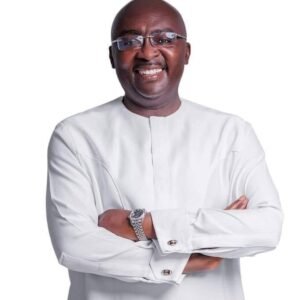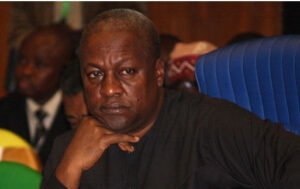
By Cameron Duodu
Quite frankly, I am not happy about the reopening of educational institutions at this time.
I am, of course, not the most qualified person to articulate views on that subject, since, in all humility, I am not a trained scientist.
But I can tell when the scientists are uneasy about a matter they are charged with, but about which they are unable to take the public fully into their confidence.
They would normally act thus if they fear that too much plain-speaking on their part would create panic in the populace. The trouble about a panic, though, is that it will occur no matter what responsible officials do – so long as certain objective factors favour panic-creation. That’s why “Public Health 101” has determined that the public must always be given accurate information, and in a timely manner, whenever public health is threatened.
Scary situation
Now, in the few days before the President gave us an update on Covid-19 in his update of Sunday, 17 January 2021, social media had been inundated with “whispers” that the Covid-19 situation was worse than was being portrayed by the Ministry of Health. In fact, things were so bad – so went the public suspicion – that Ministry of Health was no longer updating the information on its usually reliable website!
There were vivid descriptions, some no doubt exaggerated, of the alleged inability of hospitals and clinics to cope with the situation they were facing. Videos were posted that laid emphasis on the effects of a breakdown in the observance, by large sections of our populace, of the protocols laid down for Covid-19 prevention, and whose relative observance by most of us, had saved us from a worse outbreak of the disease than in some countries far more technologically advanced than us.
Guards down
The wearing of face masks was becoming things of the past in Ghana’s public places. Sanitisers had vanished from public places that formerly offered them.
So bad did the situation seem to be that the Ghana Medical Association felt obliged to issue a public statement drawing attention to some of the failures its members had observed, with regard to combatting Covid-19. Additionally, some powerful individuals in the medical community also made their disquiet known to the public.
Meanwhile, the Ministry of Health itself stayed silent, adding to the widespread impression in the country that the authorities might be hiding unpleasant facts from the public. The more cynical elements in the society concluded – and felt it patriotic to propagate the view – that with the election over, Ministers and officials were too preoccupied with the retention, or otherwise, of their positions in government, to care too much about such matters as keeping the public informed on what was currently happening with regard to Covid-19.
Presidential message
Fortunately, the President must have got strong wind of this public disaffection, for his broadcast on 17 January did not quibble but went straight to the point. He answered most of our questions by stating that:
“When I delivered Update No. 21 some two weeks ago, I urged all of us to continue adhering to the enhanced hygiene and mask-wearing protocols that have served us well, and which led us to the situation where we were witnessing a gradual decline in the number of active cases.
“However, since that time, we have seen an upsurge in the number of active cases. [The number of active cases has risen] from a little over nine hundred (900), to one thousand, nine hundred and twenty-four (1,924),” he specified.
This means that the number of active cases had more than doubled!
The President went on: “Our COVID-19 treatment centres have gone from having zero patients to now being full. [This is] because of the upsurge in infections. Particularly worrying is the fact that the Ghana Health Service is recording, on the average, two hundred (200) new cases of COVID infections daily.”
Continuing, the President additionally revealed that: “The number of patients requiring hospitalisation and intensive care is rising. The number of severe cases, which stood at eighteen (18) a week ago, has increased sharply to one hundred and twenty (120). Two weeks ago, there was no critical case, we now have thirty-three (33) in our treatment facilities. Again, according to statistics from the Ghana Health Service, the considerable number of persons who are severely ill are, surprisingly, relatively youthful persons, with no previous underlying health conditions. The number of confirmed deaths has increased, sadly, from three hundred and thirty-eight (338) persons, to three hundred and fifty-two (352) within the period.”
I continue to ask the question: why did the Ghana Health Service, upon observing the upsurge in the occurrence of the disease, wait for a crucial number of days – until the President’s address – before telling the public what was happening, through the President?
Danger
One might be accused of belabouring the point, but it has to be drummed into the heads of those who have anything to do with public health policy that in times of emergencies such as pandemics, it is extremely dangerous to allow the slightest information vacuum to occur. For as sure as the sun rises, the vacuum will be filled. But in filling it, people will insert their own prejudices, ignorant misconceptions and/or political opinions. These uninformed pieces of information will be swallowed by the populace, and psychologically the very panic which officialdom had wished to evade by remaining silent, would be created: with what in local parlance would be termed jaara (free bonus!)
It is to be hoped that the Ministry of Health will not allow such a hiatus in the flow of necessary public information to occur again. For it is simply unrealistic to imagine that when the number of active cases has risen from 900 to 1,924, the society won’t get to know that fact and be frightened by it. Indeed, if the agitation against the reopening of schools becomes irresistible, the fault should be laid at the door of those terrible two weeks of silence.
The whole episode underlies the fact that the Ebola vaccine trial fiasco did not teach any lessons to some in our scientific community.
The President also told us that: “Recent genomic sequencing undertaken by [Ghanaian] scientists has established that some arriving passengers tested positive for new variants of COVID-19. These passengers have all been isolated. Furthermore, work is ongoing to determine the presence and extent of spread of the new variants in the general population.
He added that “Detailed investigations of the cases indicate that, apart from arriving passengers at our airport who tested positive, infected persons have recent histories of attending parties, weddings, end of year office programmes, family get-togethers, and funerals. At these gatherings, most of them abandoned the use of the masks and were engaged in actions that led to them contracting the virus.”
At this current rate, “whereby thirteen (13) out of the sixteen (16) regions have recorded active cases, Ghana’s healthcare infrastructure will be ‘overwhelmed’,” the President warned.
Actions taken
He had therefore “instructed the Inspector General of Police to direct officers, men and women of the Police Service to ensure the rigorous enforcement of the law on mask-wearing at all public places and in public transport. They are also to ensure the closure of all night clubs, pubs, cinemas and beaches that may be operating in defiance of the law. They will be assisted by the other security agencies, if need be.”
The President reiterated that persons in market places, workplaces, and operators of public transport “must conduct their activities in accordance with the hygiene and safety protocols. The wearing of masks in these places is mandatory,” he declared.
“Regulatory agencies will undertake random checks to ensure conformity with COVID-19 rules. Should any facility or institution fail to comply with these directives, its activities will be immediately prohibited, and appropriate sanctions applied.”
On the possibility of imposing further “lockdowns” on economic and social activity in Ghana, the President said “should the number of active cases continue to increase at the current rate, I will have no option but to re-impose these restrictions, because it is better to be safe than to be sorry.”
The President assured Ghanaians that his Government was “intensifying its strategy of enhanced 3Ts, ie. tracing, testing and treating”, to allow infected persons to be isolated and treated. All laboratories, public and private, were required to supply, in real time, data on all persons tested on the common platform established by the Ghana Health Service.
Schools reopening
On the reopening of schools, the President said: “As our children in kindergarten, primary, junior high school, SHS 2 and SHS 3 resume school from [Monday 18 January 2021] I wish to reiterate that the Government has taken the required steps to ensure their safety in school. Heads of institutions, as well as their teachers, have undergone the requisite orientation on “Guidelines for school re-opening during COVID-19”, to enable them assist with compliance of students with the protocols. I have been encouraged by the preparations being made by many school… If we embrace the safety protocols, i.e. the enhanced hygiene and mask wearing protocols….we will see light at the end of this tunnel. Zero active cases – that is the goal. We can and must reach it.”
As I was concluding this article, the terrible news reached me that the National Security Coordinator, Mr Joshua Kyeremeh, had died in the early hours of Monday, 18 January, 2021. He had held the post since 2017. My sincere condolences go to his family and colleagues.
Nothing could add more weight to the President’s words of 17 January 2021, than this tragic loss his Government has suffered.







